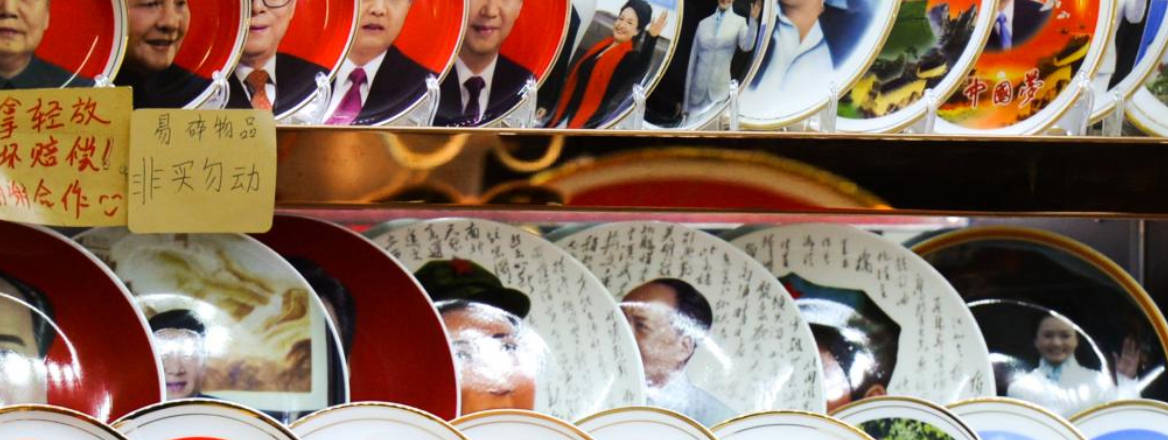Amendments to the Constitution Underline Xi’s Consolidation of Power
Chinese President Xi Jinping's decision to remove a constitutional provision limiting his term in office may have little practical impact on who is already one of the Chinese Communist Party's strongest leaders in history. Still, the decision tells us a great deal about Xi's long-term intentions, but also about resistance he may still be encountering to his political agenda.
The Communist Party of China Central Committee proposed to remove the expression that the president and vice-president of the People's Republic of China ‘shall serve no more than two consecutive terms’, from the country’s constitution.
‘The Party proscribes all forms of personality cult. It shall be ensured that the activities of Party leaders are subject to oversight by the Party and the people …’ Chapter II, Article 10, Section 6 of the Constitution of the Chinese Communist Party (CCP).
So that’s clear. CCP General Secretary Xi Jinping will now also get the opportunity to set aside the two-term presidential limit by being able to serve for a third term as China’s president.
It’s also better to use the title of general secretary, the position which bestows real power in Beijing, rather than ‘president’ for, if the past five years have emphasised one thing, it is that the fiction of separation between party and government has worn beyond threadbare.
Xi is already the ‘core’ of the party, already titled lingxiu – a term for leader used of Mao but never of his successors – who had his ‘Thought’ enshrined in the party’s canons, and will now also get the opportunity to set aside the two-term presidential limit by being able to serve for a third term. But, as China’s official propaganda outlets aver, there is, of course, no personality cult. None at all.
Less clear is whether removing a two-term presidential limit from the existing Chinese constitution matters. It does, but not in the way many have supposed. Being president is not the source of Xi’s power; after all, Deng Xiaoping was undoubtedly powerful, but he was not president, except of the Chinese Bridge Association.
Power comes from control of the party and of the Central Military Commission, neither of which posts is limited by the party constitution (or the national constitution) to two terms. Xi was already free to head both after 2022 and allow someone else to represent the government and nation as president, just as Deng allowed Li Xiannian and Yang Shangkun to do.
But the constitutional amendment does matter, or else Xi and his supporters would not have pushed for it. This may be partly related to Xi’s character. He surely welcomes the distinctions heaped upon him, and he is powerful enough to stop them if they are not to his taste.
He must want to continue in all top three jobs. Or he may want to stop someone else having them – the obvious candidate is Premier Li Keqiang, who will be 67 in 2022 and, according to current norms, still eligible for the three top party, government and military posts.
It matters too, because the very act of changing the constitution to allow him to serve for a third term may indicate a lack of confidence in his power, or at least an acknowledgement that there is considerable opposition to his project.
If he enjoyed unanimity within the party or something near it, why would he need to send a signal so early that he may intend to stay on? But we know that there is serious opposition, for why else would there have been the extraordinary and open acknowledgement of ‘conspiracies’ within the party?
It matters also, because the constitutional move is a symbol of how great Xi’s power has become, although not yet on a par with Deng, who like the Roman emperor Augustus ruled through auctoritas (authority) rather than potestas (position). The strong possibility of Xi remaining in office beyond the two-term limit means that both his domestic reform programme and China’s foreign policy will increasingly be his policy.
Perhaps the move matters most for the long-term stability of politics within China. The more powerful a leader, the less likely he is to listen to others and the less likely others are to provide him with information and advice which contradicts his line.
So, the decision to change the constitutionally mandated terms could be a recipe for bad decision making. Furthermore, the perennial problem of authoritarian states is how to hand on political power from one leader to the next, and until the establishment in the last few decades of some mild ‘institutionalisation’, China’s experience of arranging successors has been doleful.
Xi’s actions don’t help this institutionalisation process one little bit, for they undermine whatever ‘norms’ were being observed, such as consensus leadership and age limits for those serving, as well as the practice of nominating successors and grooming them for five years in the Politburo Standing Committee before they take office.
The risk is that, come 2027 or 2028 and assuming Xi does not go for a fourth term, his enormous power will undermine that of a potential successor, returning China to its past of power struggles.
And why now?
Why did Xi not wait until next year or nearer 2022 before making his intentions clear(er)? After all, the last two-large scale amendments to the constitution – in 1999 and 2004 – came not at the National People’s Congresses immediately after the five-yearly Party Congresses, but at the second NPC of the new term. And the necessary constitutional amendments were allowed to brew for sixteen months, not four.
The main answer to this question is that amending the constitution is not principally about removing a barrier to Xi serving a third term as president, although given the media’s concentration on that issue, you could be forgiven for thinking it was.
The changes are principally about incorporating Xi’s Thought – his emphasis on society, the environment, the Chinese Dream and rejuvenation – and especially about accommodating the National Supervision Commission, a new organ of power.
This entity stands for a massive change in governance, not least because it extends the party’s powers of discipline and control to all public servants, whether they are members or not.
However, Xi is keen to get all the above in play and in the constitution as soon as possible. Amending the constitution is a big thing and, if it has to be altered anyway, then it makes sense to add in other measures, such as removing limits on his own power.
The message is, therefore, clear: ‘The power is mine, my programme must speed ahead because time is short’. In 2014, the head of one of China’s major think tanks declared that the reform programme would take until 2027 and maybe 2032 to accomplish. Five years have passed since it was announced at the Third Plenum and not much has been achieved, beyond the consolidation of power.
Xi may be in a hurry. By not waiting until 2022–23 before signalling his intention to stay on, Xi is surely telling the doubters and delayers that they have no option but to knuckle down and push forward his programme.
And, if you want more evidence that, in George Orwell’s words, ‘some animals are more equal than others’, read the new Article 124 in the amended constitution: ‘The head of the Supervision Commission may not serve more than two consecutive terms of office’. The word ‘irony’ does not translate happily into Mandarin.
But remember: there is no personality cult!
The views expressed in this Commentary are the author’s, and do not necessarily reflect those of RUSI or any other institution.
WRITTEN BY
Charles Parton OBE
RUSI Senior Associate Fellow, International Security


